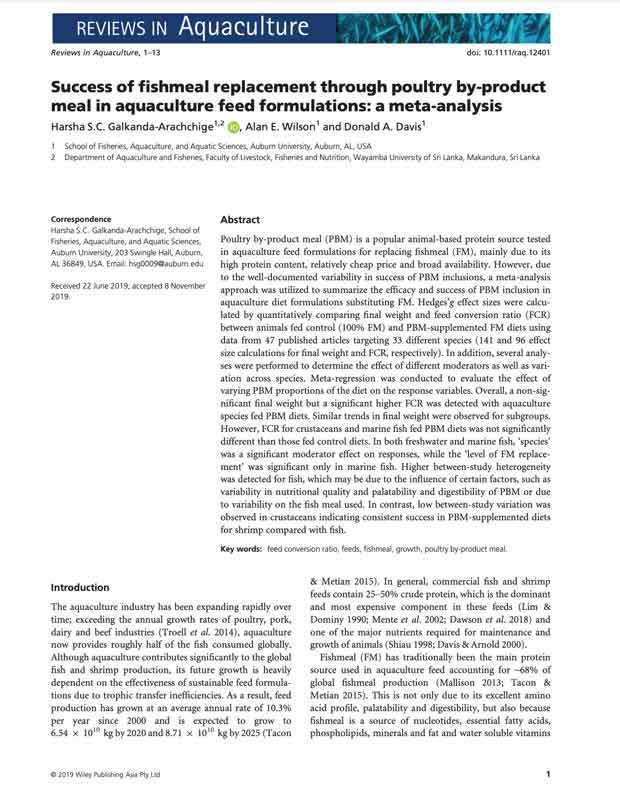Keyword: Feed Conversion Ratio

Galkanda-Arachchige, H., A. E. Wilson, and D. A. Davis. 2020. Success of fishmeal replacement through poultry by-product meal in aquaculture feed formulations: a meta-analysis. Reviews in Aquaculture 12(3):1624-1636. (Clarivate Analytics Web of Science Highly Cited Paper)
Abstract
Poultry by-product meal (PBM) is a popular animal-based protein source tested in aquaculture feed formulations for replacing fishmeal (FM), mainly due to its high protein content, relatively cheap price and broad availability. However, due to the well-documented variability in success of PBM inclusions, a meta-analysis approach was utilized to summarize the efficacy and success of PBM inclusion in aquaculture diet formulations substituting FM. Hedges’g effect sizes were calculated by quantitatively comparing final weight and feed conversion ratio (FCR) between animals fed control (100% FM) and PBM-supplemented FM diets using data from 47 published articles targeting 33 different species (141 and 96 effect size calculations for final weight and FCR, respectively). In addition, several analyses were performed to determine the effect of different moderators as well as variation across species. Meta-regression was conducted to evaluate the effect of varying PBM proportions of the diet on the response variables. Overall, a non-significant final weight but a significant higher FCR was detected with aquaculture species fed PBM diets. Similar trends in final weight were observed for subgroups. However, FCR for crustaceans and marine fish fed PBM diets was not significantly different than those fed control diets. In both freshwater and marine fish, ‘species’ was a significant moderator effect on responses, while the ‘level of FM replacement’ was significant only in marine fish. Higher between-study heterogeneity was detected for fish, which may be due to the influence of certain factors, such as variability in nutritional quality and palatability and digestibility of PBM or due to variability on the fish meal used. In contrast, low between-study variation was observed in crustaceans indicating consistent success in PBM-supplemented diets for shrimp compared with fish.